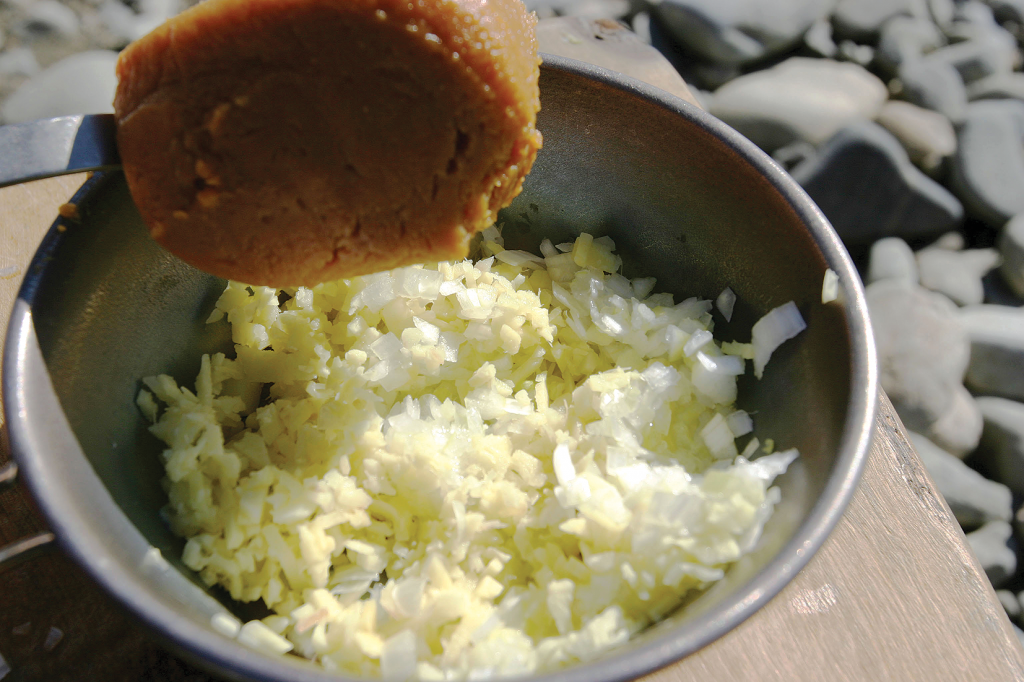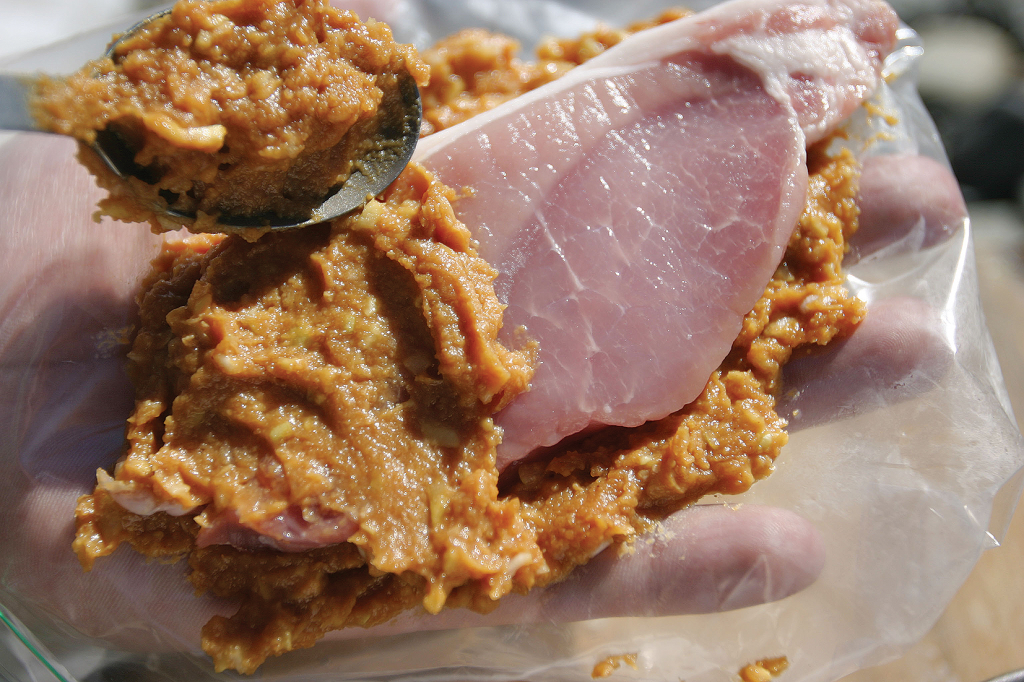
Ingredients
Pork
Miso paste
Mirin
Garlic
Onions (regular or Japanese leeks)
Plastic food container or sealable bag for storing
In the days before refrigerators, folks around the world thought up various ways to preserve food at room temperature. Removing the moisture that causes most spoiling was done via drying and smoking. This gave us things such as dried fish and beef jerky.
Another method, preserving with salt, allowed food to be stored in a condition somewhat closer to raw. In Japan, a derivative of salting arrived in the preservative form of soy sauce which was the start of tsukudani, highlighted in the previous issue of Outdoor Japan Magazine. In this month’s issue, we showcase “miso marinade,” another of the traditional Japanese preservatives.
Add the chopped garlic and onion to the miso, splash in some mirin and mix until you have a soft paste. Include some fine-cut ginger or shiso leaves for an extra tang.

Marinating something in miso doesn’t just add taste, it blocks out the air to prevent oxidation, dries the food via osmosis, and the high salt content in miso acts as a preservative.
Spread a healthy amount of the paste over both sides and let the meaty mix marinade in your plastic container for at least one night in order to allow the miso to really seep into the pork. Lightly scrape off the miso and grill over flame or cook in a frying pan.
Pork, beef, chicken, other meats and even fish are all complemented by miso. We’re adding finely chopped garlic and onions, both of which are vegetables with preservative qualities. Perhaps a pinch of tougarashi might add to the flavor and storability of the dish too. The miso marinade can be reused two to three times and then mixed with soup stock and vegetables for miso soup.

For the purposes of this article, we are grilling thinly cut slices of pork; the smell wafting from the miso is just as tantalizing to Japanese as that of charred soy sauce. I’m drooling already.




